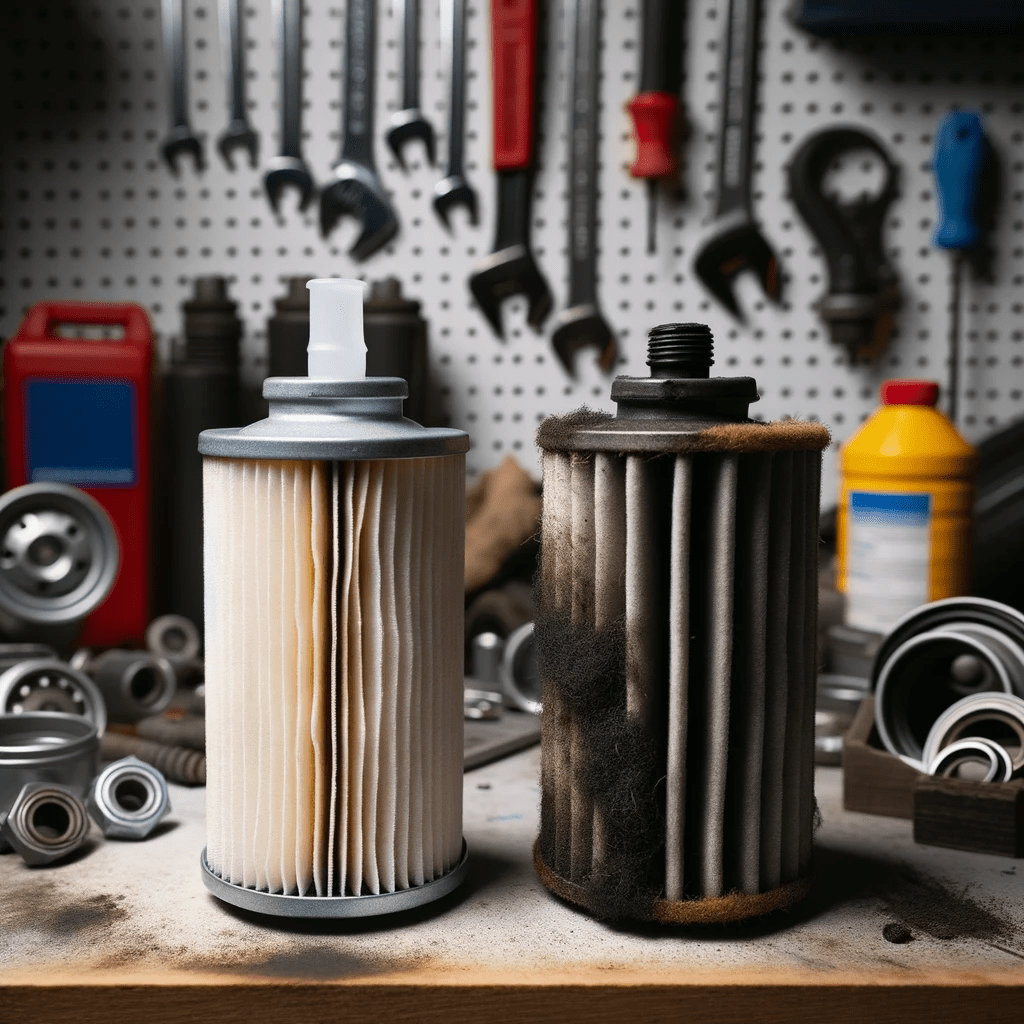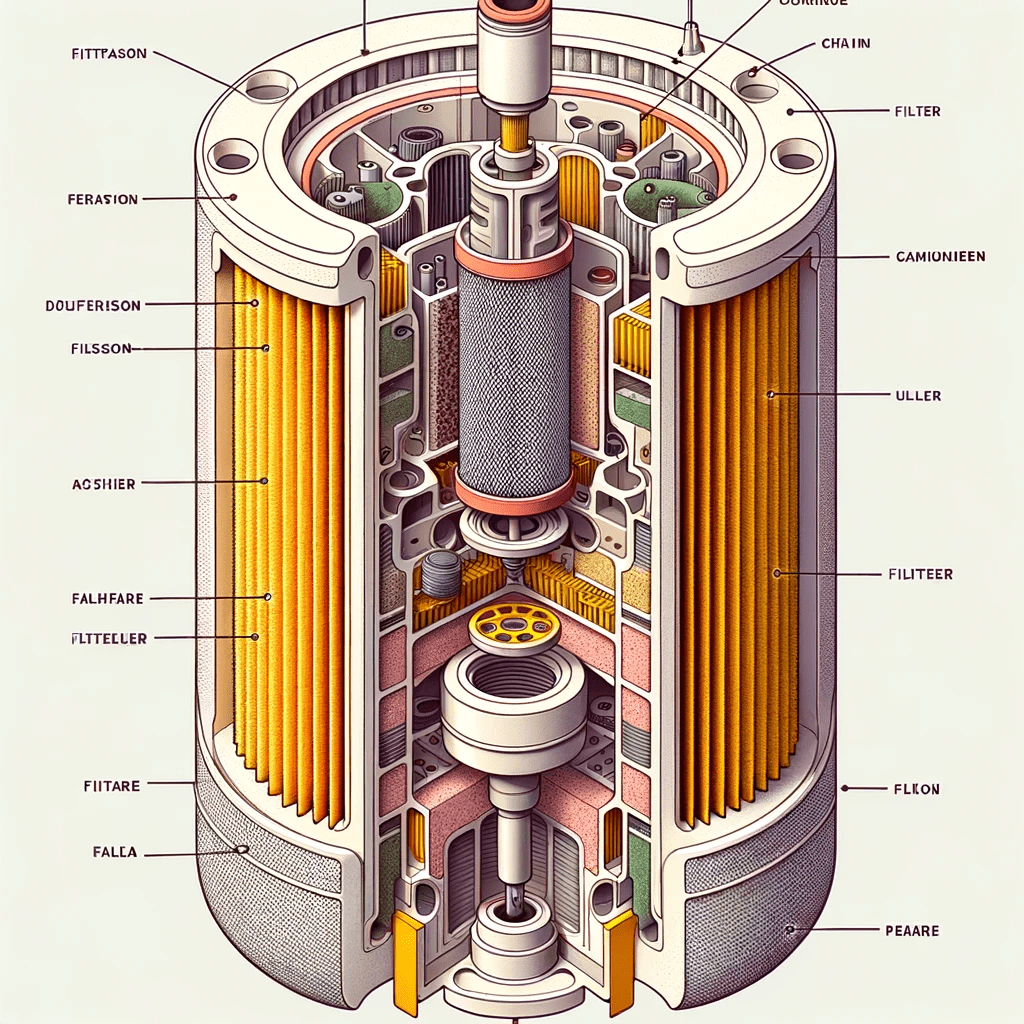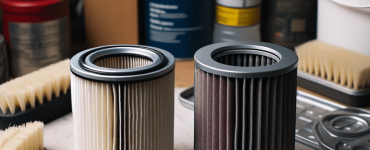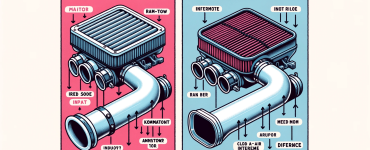Understanding the Importance of Fuel Filter
Key Takeaways:
- Clean Fuel: Fuel filters ensure a continuous supply of clean fuel to the engine, enhancing its performance and longevity.
- Preventing Contamination: By filtering out debris, fuel filters prevent harmful contaminants from entering the combustion chamber.
- Protection of Fuel System Components: Fuel filters safeguard the delicate components of the fuel system from clogging.
- Maintenance Tips: Regular maintenance and timely replacement of fuel filters are crucial to prevent fuel system issues.
Fuel filters might not be the first thing that comes to mind when considering vehicle maintenance, yet their role is pivotal in ensuring the optimal performance and longevity of your engine. Often likened to the kidneys of a vehicle, fuel filters purify the fuel by trapping dirt, debris, and other contaminants before the fuel reaches the engine. This post delves into the importance of fuel filter, elucidating how they contribute to the engine’s health and the overall performance of your vehicle.
The Crucial importance of fuel filter:
Ensuring a Clean Fuel Supply:
A fuel filter’s primary job is to ensure that the fuel flowing to the engine is clean and free from harmful contaminants. This is imperative as clean fuel burns more efficiently, thus ensuring better fuel economy and lower emissions. Moreover, clean fuel prevents the build-up of residue in the engine, which can lead to costly repairs down the line.
Preventing Engine Contamination:
By acting as a barrier to debris and other contaminants, fuel filters play a crucial role in preventing these harmful substances from entering the combustion chamber of the engine. This is of paramount importance as contaminants can cause severe damage to the engine, affecting its performance and leading to potential breakdowns.
Learn more about common fuel system issues.
Importance of fuel filter- Protection of Engine and Fuel System:
Guarding Against Clogs:
Fuel filters are the unsung heroes that protect the delicate components of the fuel system from clogging. Impurities such as dust, rust, and other particles can clog the fuel injectors and carburetors, leading to poor engine performance. By filtering out these impurities, fuel filters ensure that the fuel system components function efficiently.
Enhancing Fuel Flow:
Ensuring a steady and uncontaminated flow of fuel is essential for the engine to function optimally. Fuel filters contribute to this by preventing anything that could potentially clog up the fuel system, thereby ensuring that the fuel flows at the requisite rate from the tank to the engine.
In the subsequent sections, we will delve deeper into the maintenance of fuel filters, highlighting how regular checks and timely replacement can significantly contribute to the overall health of your vehicle’s engine and fuel system. Stay tuned as we also share practical maintenance tips to ensure that your fuel filters continue to perform their crucial role efficiently.
Maintenance of Fuel Filters:

Maintaining your vehicle’s fuel filters is a relatively simple yet vital aspect of ensuring the overall health of your engine and fuel system. By adhering to a regular maintenance schedule, you can prevent a plethora of issues that could potentially arise due to clogged or malfunctioning fuel filters.
Adhering to a Maintenance Schedule:
Just like any other component of your vehicle, fuel filters require regular checks and replacements to ensure they continue to function optimally. Adhering to the maintenance schedule recommended by your vehicle’s manufacturer is crucial to ensure the longevity of your engine and fuel system.
Replacing Fuel Filters:
Over time, fuel filters can become clogged with debris and other contaminants, which can significantly impede the flow of fuel to the engine. Replacing the fuel filters as per the recommended schedule or at the first sign of trouble can prevent costly repairs and ensure the optimal performance of your vehicle.
Discover common fuel system issues and how to troubleshoot them.
Key Table:
Maintenance Activity Frequency Check Fuel Filters Every 10,000 miles Replace Fuel Filters Every 20,000 to 40,000 miles or as per manufacturer’s recommendations Fuel System Inspection At every service interval
Conclusion about the importance of fuel filter:
The importance of fuel filters in ensuring the smooth operation and longevity of your engine cannot be overstated. They are the first line of defense against contaminants that could potentially harm your engine and lead to costly repairs. By understanding the crucial role they play and adhering to a regular maintenance schedule, you can significantly enhance the performance and lifespan of your vehicle.
In addition to regular maintenance, being aware of common fuel system issues and knowing how to troubleshoot them can also be beneficial. The guide on troubleshooting fuel gauge reading inaccuracies on our website provides insightful tips on maintaining your fuel system and ensuring its optimal performance.
In conclusion, investing time and effort in maintaining your fuel filters is a small price to pay for ensuring the optimal performance and longevity of your vehicle’s engine. So, the next time you take your vehicle for servicing, make sure to have the fuel filters checked and replaced if necessary, to enjoy a smooth and trouble-free driving experience.
Key Takeaways:
- Regular Maintenance: Adherence to a regular maintenance schedule is crucial for the optimal performance of fuel filters and, in turn, your engine.
- Timely Replacement: Replacing fuel filters at the recommended intervals or at the first sign of trouble can prevent costly repairs.
- Awareness and Troubleshooting: Being aware of common fuel system issues and knowing how to troubleshoot them can save time and money in the long run.





